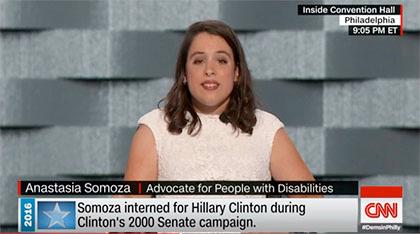
Welcome to the RAISE e-news letter, designed to identify and share resources that the Rehabilitation Services Administration Parent Training and Information Centers (RSA-PTI) can use and share with families.
Executive Editor: Peg Kinsell
Visit our Website:
|
About RAISE
RAISE, the National Resources for Access, Independence, Self-Advocacy and Employment is a user-centered technical assistance center that understands the needs and assets of the RSA-PTIs, coordinates efforts with the TA provided by PTI centers and involves RSA-PTIs as key advisors and partners in all product and service development and delivery.
RAISE is funded by the US Department of Education to provide technical assistance to, and coordination of, the 7 PTI centers (RSA-PTIs). It represents collaboration between the nation's two Parent Technical Assistance Centers (PTAC) and the seven Regional PTACs.
Find your Parent Technical Assistance Center (PTAC)
|
|
 |
"The government is us; we are the government, you and I."
- Theodore Roosevelt
|

Election season is in full swing and it has never been a better time to help ensure that students and youth with disabilities are prepared as young citizens, and that they understand their right to full political participation. This issue of the RAISE e-news focuses on citizenship and civic engagement as part of transition planning.
Fast Facts:
- In 2000, 42% of people with disabilities voted compared to 52% of people without disabilities.
- In 2012, 56.8% of people with disabilities voted compared to 62.5% of people without disabilities.
- If people with disabilities voted at the same rate as people without disabilities there would be more than 3 million people with disabilities voting.
- In 2008, 43 states reported that they required accessibility standards for polling places, up from 23 states in 2000. At the same time, 31 states reported that ensuring polling place accessibility was challenging.
|
PERSPECTIVE:
Disability Rights Advocate Takes Center Stage on the Issue of Fair Wages

Anastasia Somoza made history last summer as the first person with a disability to speak on disability issues at a major party convention. Raised in New York City, Anastasia is fluent in English and Spanish, and has been a defender of human rights.
By now, most people have heard her speech as she addressed a national audience at the Democratic National Convention in Philadelphia, but far fewer have seen her speech on the ADA in Beijing in 2015.
Anastasia, who has cerebral palsy and spastic quadriplegia, urged candidates to address rates of pay for workers with disabilities - an issue that is receiving attention in both the Democratic and Republican Party platforms.
The platforms approved last summer at the Democratic and Republican Party conventions are both urging a move toward competitive employment.
Under current law dating back to the 1930s, employers are able to get special permission from the U.S. Department of Labor to pay people with disabilities less than the federal minimum wage of $7.25 per hour. The Transition to Integrated and Meaningful Employment (TIME) Act would bar the Labor Department from issuing new certificates allowing the payment of subminimum wage and would phase out the use of existing certificates within three years.
|
 MAKING YOUR POINT: MAKING YOUR POINT:
In a democracy, voting is the ultimate form of communication. Our friends at
Easter Seals have compiled a list of resources to help voters with disabilities make informed decisions this election season.
 Take Action: Take Action:
Rock The Vote has a state-by-state information guide on how to register to vote. It takes less than 2 minutes and can be translated into 10 languages.
|
 NEWS FROM WASHINGTON: NEWS FROM WASHINGTON:
October is National Disability Employment Awareness Month, which includes Disability Mentoring Day (DMD). DMD is a large-scale national effort coordinated by AAPD to promote career development for students and job-seekers with disabilities through hands-on career exploration and ongoing mentoring relationships.
|
 RESOURCES: RESOURCES:
The Center for Civic Engagement
The Center for Civic Engagement is a terrific resource to help teachers, parents, advocates and students learn more about civic engagement. While not designed specifically for special education, the website offers lesson plans, resources, and fun videos.
 We also love Inclusion International's 2015 Toolkit for Inclusive Civic Engagement, designed for people with intellectual disabilities. The guidebook includes a 6-page action tool to assess political participation.
|

TOOLS THAT WORK:
Here is a one-stop Tool that Works! Who knew the importance of student council and the debate team for building civic-minded students?
We love the proven practices detailed in the
2014 Education Commission of the States' (ESC) Guidebook. Each of the 6 Proven Practices is described in terms of what it looks like in the classroom, concrete examples, and a summary of research that supports the practice, along with projects and organizations aligned with the practice and examples of State policies that support them.
|
|